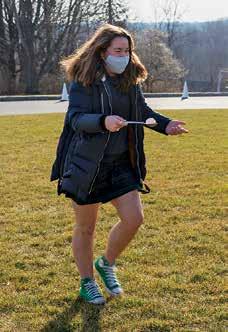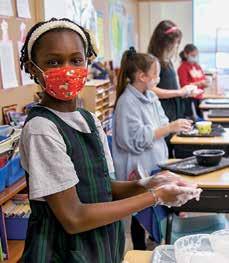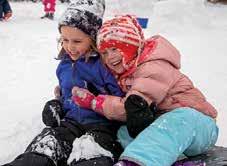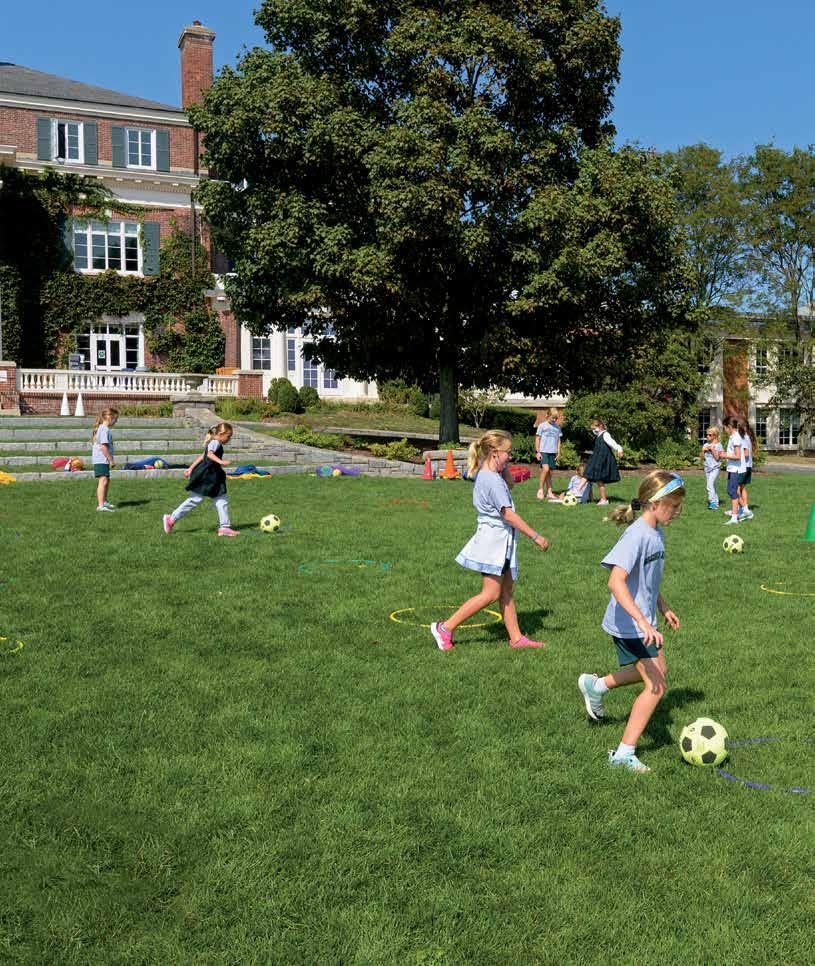
4 minute read
A Modern Wellness Curriculum Founded in 1848
Courage +
Confidence
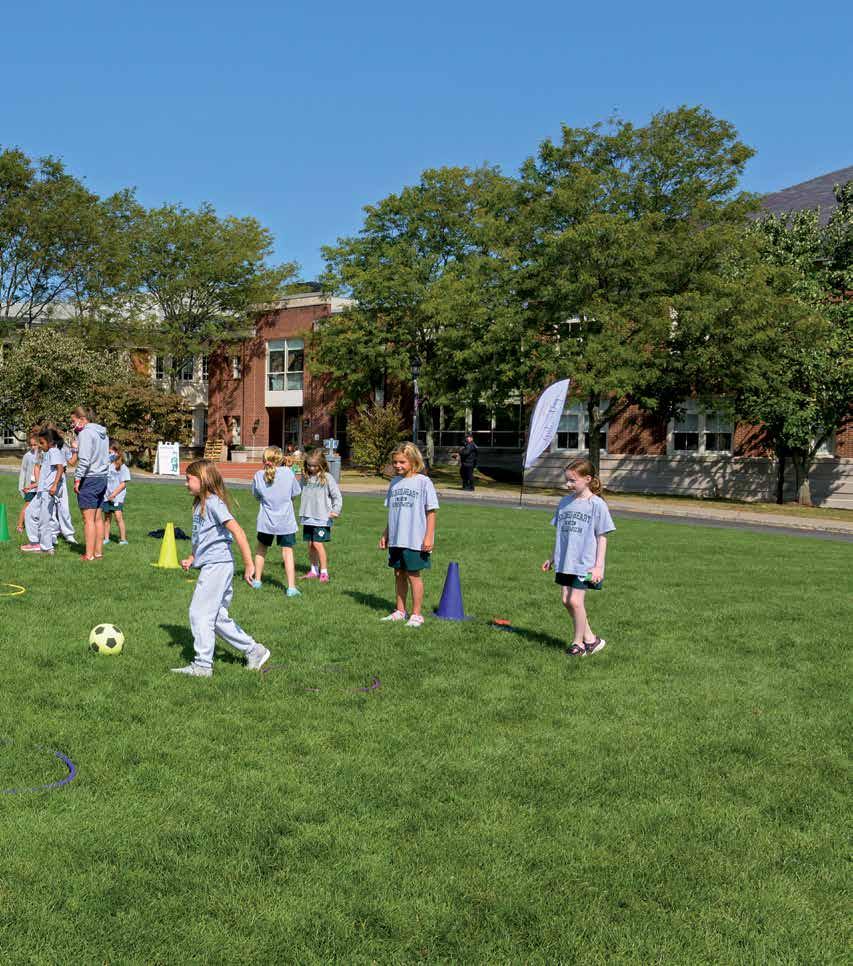
The lead of the play Annie? A GIRL. The head of the student body? A GIRL. The valedictorian? A GIRL. The community service representative? A GIRL. The National Merit Scholar? A GIRL. The Scholastic Art & Writing Gold Award winner? A GIRL. The editor of the King Street Chronicle? A GIRL. The CT STEM Fair winner? A GIRL.
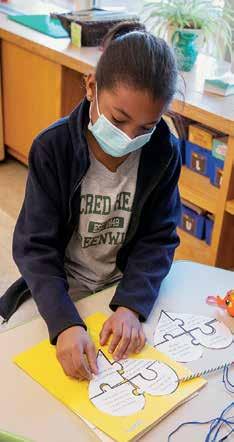
A GIRL OCCUPIES EVERY LEADERSHIP
ROLE AT SACRED HEART. In a survey by the Goodman Research Group, 80% of girls’ school graduates go on to hold leadership positions after college and beyond. For Director of Athletics Liz Dennison, leadership is all about helping girls find their niches and encouraging them to bring others along with them. It’s not just about the varsity sports captain, leadership is important for every Sacred Heart girl.
Senior Catherine feels similarly, saying that leadership is “not reserved for the confident and outspoken, rather, everyone is a leader in her daily life by just setting small and meaningful examples” for those around her. For Catherine, that means creating wellness in her life — a balance of mental physical peace and happiness that she achieves through acting to spark creativity and boxing for exercise.
A newly formed Board of Trustees committee on Wellness and Leadership aims to streamline programming and embed this type of training directly into each Division’s curriculum. The committee is well-timed with the newly revisioned Criterion of Goal V that asks Sacred Heart schools to create a “culture that promotes spiritual, intellectual, physical and socialemotional well-being.”
School psychologist Dr. Melissa Otero has been at the forefront of implementing a school-wide social and emotional learning curriculum. Each week, she goes into Lower School classes for what the girls describe as “feelings class” or “Happy Hearts.” Otero aims to help the youngest students recognize, understand, express, and manage emotions. There’s also an overlay of Catholic virtues each month that is taught by Head of Lower School Dr. Jessica McGibbon.
Why is it important to learn about feelings for these young students? Otero highlights that giving the girls power and agency over their emotions allows them to manage difficult
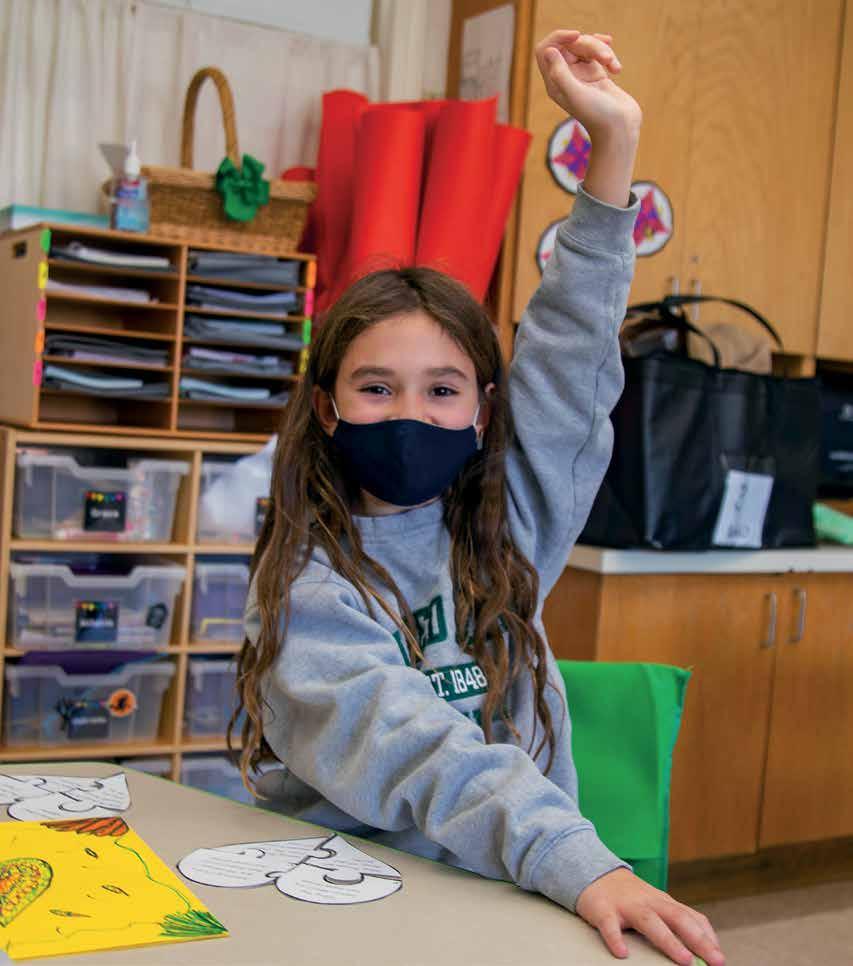
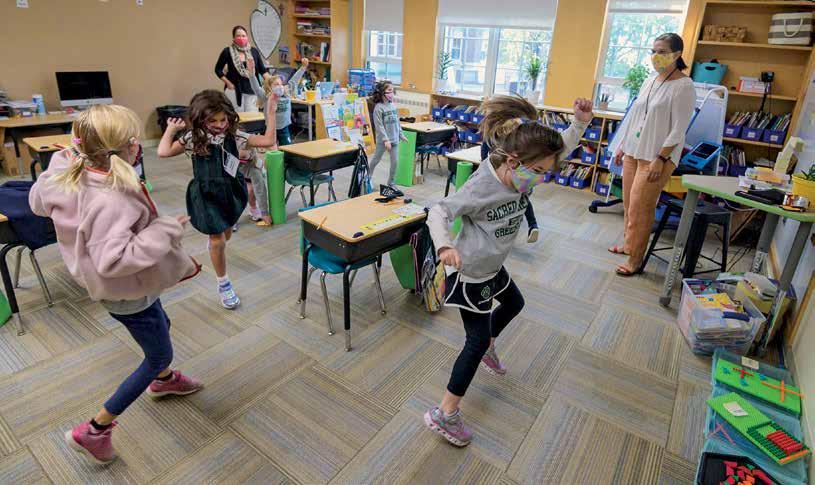
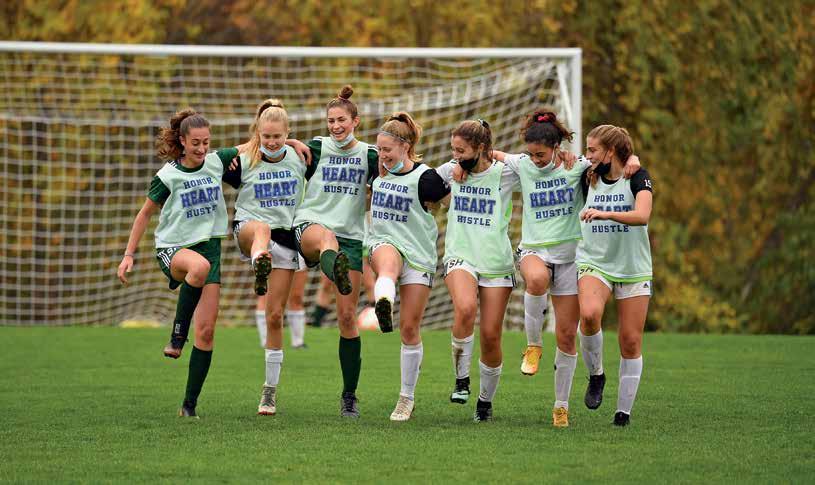
emotions when they pop up — which they do, on a daily basis — and quickly get back to the task at hand in the classroom. First-grader Sasha said, “It important for me to express my feelings or else no one will know how to cheer me on during the day. I need my friends, and they need me too.”
The program then builds in the Middle School, where wellness is now a course built into the flex period schedule. Structured using the Healthy Mind Platter, classes are broken up into 15-minute chunks based on the seven daily activities incorporated in the platter. For sixth-grader Annabel, wellness is directly tied to the community-first sentiments expressed in the Goals & Criteria. Reflecting on her leadership coursework, Annabel said, “Leadership means taking responsibility for your community, whether that means looking out for your neighbors or taking care of where you live. Anyone can be a leader, but a true leader puts community first.”
Bravery, courage, and all-terrain skills are learned, developed, and practiced just like English, math, or science in the Upper School. Each advisory participates in bravery training and girls have the opportunity to apply to the Leadership Academy to hone skills further. Freshman Caroline has learned to define wellness as a function of “finding a sense of happiness mentally, physically, and socially” and understanding that this transcends the activities in her day. Wellness in school, sports, and clubs are intertwined and impact her performance in the others.
As Madeleine Sophie Barat said, “Courage and confidence! I cannot repeat this war-cry too often.” And you will hear courage and confidence repeated on King Street in each division during the exploration of wellness and leadership programming. Central to a Sacred Heart education is the ability to channel our foundress’ vision by developing and applying these concepts in and out of the classroom. A Sacred Heart graduate is brave, takes risks, communicates effectively, and amplifies her role within her community.
Dr. Otero reminds us that having courage and confidence takes practice from an early age in individual and group settings. “Challenges become greater as you get older,” Otero notes. “Learning how to manage emotions creates the opportunity to be in a state of good health. Our wellness allows us to thrive and flourish; to do the things and pursue the things we are passionate about and love. In a state of good health, these things come naturally, and lead us to greater results.” With the support of the Board committee, a new coordinated speaker series will be introduced to expand wellness and leadership programming and address topics for both students and parents thus ensuring everyone in the Sacred Heart community has access to the resources to build wellness and leadership skills.
If you see her,
YOU CAN BE HER.
